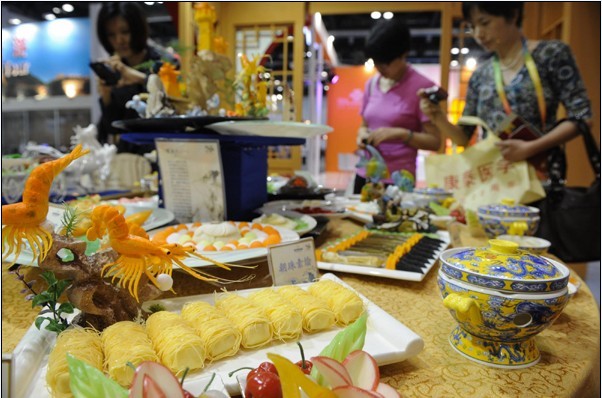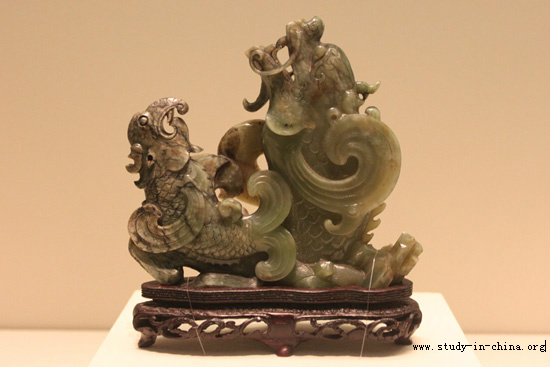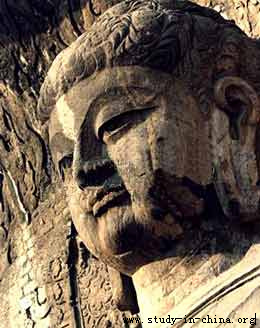| Home > China Feature |
Tips on Studying Abroad in China
Today, at the beginning of the new century, China is continuing to reform and open up to the outside world. By the middle of this century, China will have basically realized the Four Modernizations. A strong, democratic, and highly civilized China in the eastern hemisphere will play an important role in maintaining world peace and a prosperous international economy, and will ensure a glorious future for all mankind. Therefore, it is undoubtedly an attractive choice for foreign students. Here is some information for those foreign students applying to study in China.
Application
Ways to Apply to Study in China
The first way is via exchanges between governments. In other words, students can apply under the bilateral exchanges agreements between the respective governments.
The second way is via inter-college exchanges, which are handled in accordance with exchanges agreements between colleges or universities.
The third way is via recommendations by communities. This can mean applying by means of China's relevant organizations or directly to related universities or colleges in China by foreign universities or colleges, educational organizations, or friendship groups.
The fourth way is via individual applications. In other words, individual students may apply through China's relevant agencies or directly to the relevant universities or colleges in China.
Preparation of Application Materials
First, submit appropriate application forms for studying in China. Second, submit a Physical Examination Record for Foreigners form. Third, submit copies of the most recent diploma, courses learned, and transcripts. Fourth (for those applying for a Master's degree or doctoral degree studies), submit recommendation letters by two teachers with titles of or above associate professor. Fifth, apart from the above items, a consignee identification of matters in China and a certificate of economic guarantee need to be provided for those studying at their own expense.
Sixth, the above materials must be in Chinese or English, or with translation in any of these two languages. Relevant forms may be available from Chinese embassies (consulates) or concerned universities in China.
When to Apply
Foreign students of bilateral exchanges projects between governments should apply through relevant departments of their own countries, which are in charge of choosing and sending students to China, from February 1 to April 30.
Foreign students of inter-college exchange projects and those self-supported students, the time for application is usually from September l5 to December l5 of the previous year for the spring term, and from February 15 to June 15 the autumn term. More information is usually available in admission brochures of universities.
Entrance Examinations and Tests
For learners and trainees of Chinese languages, enrollment will be on the basis of competitive selection in light of education certificates.
For those to be undergraduates of arts, enrollment will be on the basis of competitive selection in light of degree certificates, medium stage C level certificates of HSK (Hanyu Shuiping Kaoshi -- Chinese Proficiency Test), and the examinations and tests held by the universities.
For those to be scientific, medical, agricultural, or technological undergraduates, enrollment will be on the basis of competitive selection in light of degree certificates, primary stage C level of HSK result, and the Admission examinations.
Those who are postgraduate applicants should have bachelor's degrees certificates, certificates for courses already attended, transcripts, and recommendations of two associate professors (or with titles above); applicants will also have to pass the entrance examinations arranged by relevant universities. Only by attending courses arranged by the universities and passing courses examinations after they arrive in China can these students gain their qualifications to prepare theses; otherwise they will have to graduate as trainees.
The applicants already in China should attend united postgraduate admission examinations held by China. Universities and colleges may enroll graduates from Chinese universities (of the same year) according to China's recommendation admission methods without the said graduates having to take the usual entrance examinations.
Applicants for doctoral studies must have a Master's degree, with certificates, list of courses accomplished, and two recommendation letters by teachers with titles of associate professor or above; applicants must also and pass the examinations or tests held by the universities and colleges.
Applicants already in China should attend united doctoral students admission examinations held for native students. Foreign postgraduates in China who are qualified to graduate (with a postgraduate degree) and study for doctorates ahead of schedule can study for doctoral degrees in advance according to the relevant regulations.
Would-be undergraduates, postgraduates, and doctoral students of artistic colleges are required to offer photos or tape recordings of their artistic works and tutor's recommendations as well.
Foreign students who have graduated in China will be granted priority to return for further education.
Foreign students, of all types, will be examined by relevant universities, and enrolled on the basis of competitive selection.
Entry into China
Admission Notice
The Chinese government scholarship students
Colleges and universities will send the Admission Notice to the CSC (China Scholarship Council) after enrolling the candidates. The CSC will send the Admission Notice and Visa Application for Foreigners Wishing to Study in China (JW201) to the embassy in China or the Chinese embassy in the dispatching country, relevant dispatching organization, or the applicants.
Self-supported Students
1. The self-supported students who are included in the bilateral exchange program or recommended by overseas academic institutions, educational organizations, or nongovernment friendly associations will be arranged among the 83 institutions which are open to Chinese government scholarship students. The issuance of the Admission Notice and the Visa Application are the same as the scholarship students.
2. Individual applications for self-supported study will be processed by the 400 institutions that are open to foreign students. These institutions are in charge of the enrollment and are responsible for directly sending the Admission Notice and Visa Application for Foreigners Wishing to Study in China (JW202) to the appropriate place.
Visa Application
According to the regulations of the Ministry of Public Security, foreign students of governmental scholarships can, with the Admission Notice and the Visa Application Form for Studying in China (JW201 form) -- both delivered by the Chinese universities -- and the Physical Examination Record for Foreigner form, submit applications to Chinese embassies and consulates for an X visa within due terms.
Students of in-college exchanges projects and self-paid students chosen by the Chinese universities can, with the Admission Notice and the Visa Application Form for Foreigners to Study in China -- both delivered by the Chinese universities -- and the Physical Examination Record for Foreigner, submit applications to Chinese embassies and consulates for an X visas within due terms.
Those who will stay in China for less than half a year may apply for an F visa.
All foreign students shall bring the original copies of Admission Notice, Visa Application for Foreigners Wishing to Study in China (JW201) and the Physical Examination Record for Foreigner to apply for the Visa to China and enter China with the above original documents. Those with other passports and visas or without the original forms of the abovementioned documents cannot register at the institution, and they cannot apply for a residence permit in China.
Enrollment Registration
1. All types of foreign students enrolled by Chinese universities need to register in person at the reception desks according to the dates by the Admission Notice. Those who fail to do so due to reasonable reasons should ask for permissions by the universities in advance, or otherwise the enrollment may be canceled.
2. All the registering foreign students need to participate in the procedures of accommodation, health quarantine, residence, and payment of registration fee.
Preparations for Study in China
Mental Preparations
First, it is necessary to dispel the unfavorable influence caused by the cultural shocks. Upon stepping your foot onto Chinese territory, you may find everything fresh and interesting. Some time later, you will feel the agony brought by the cultural differences, such as difficulties in communication, and differences in values and psychology. However, as your understanding of the surrounding environment deepens, you will become adapted to it and your feeling of loneliness will gradually disappear. So, just cherish the fun of living in China and the profound Chinese culture.
Secondly, one has to dispel the perplexities and inconvenience caused by a different lifestyle and living habits. It is natural to drop your accustomed lifestyle and living habits when coming to a completely different place like China. Only through furthering your understanding of Chinese culture and constantly adapting yourself to the living habits can you get rid of such perplexities and inconvenience.
Clothing Preparations
Located in the east of the Asian continent, on the western shore of the Pacific Ocean, China features a marked continental monsoon climate characterized by great variety. Most parts of China are in the northern temperate zone while parts of the southern area are in the tropical or subtropical zone and parts of the northern area in the Frigid Zone.
In winter, there is a huge difference in temperature between North and South China, with a discrepancy of 35℃ in the average temperature of Guangzhou (South China's Guangdong Province) and Harbin (Northeast China's Heilongjiang Province) in January. The winter is usually cold, especially in the north along the Qinling Mountain - Huaihe River line. Though, heating is available in dorm and classrooms, thick and warm clothes are still indispensable.
Temperature difference is slight in summer, with a discrepancy of 5℃ in the average temperature of Guangzhou and Harbin. South China is hot and humid, while in North China, it is usually sweltering.
Most parts of China have a mild and warm climate in spring and autumn, with bright beautiful sunshine and charming scenery; therefore light casual clothes will do.
Other Preparations
1. Buy medical insurance and personal security insurance before coming to China.
2. If you would like your family members to accompany you in China, you have to get the approval of the university in advance, as accommodation for family members is not available, according to the usual practice in university management.
3. According to Chinese laws, foreign students cannot be employed in China while attending school in China. So self-supporting students must be well prepared financially.
A Profile of Chinese Service Center of Scholarly Exchange
The Chinese Service Center of Scholarly Exchange (CSCSE) is a legally registered corporate body affiliated to the Ministry of Education (MOE), People's Republic of China, specializing in a full range of services for international scholarly exchanges, including both Chinese students and scholars going abroad and returning from abroad and international students and scholars coming to study in China.
By providing services and exchange activities related to international educational cooperation, CSCSE has established a partnership with related institutions both at home and abroad.
CSCSE is composed of various divisions including: Studying Abroad Service; Passport and Visa Service; Returning Scholars; Studying in China Service; International Cooperation; Investment Consulting; and Website of CSCSE and Personnel Record Database of Chinese students and scholars studying overseas.
CSCSE has invested in and founded two affiliating companies: Beijing Chivast Education International Co., and the Beijing Yinhong Technical Developing Consultant Center. The former serves the self-supported students bound for studying abroad. The latter offers services inis majoring the service of talents hunting, technology transfer, and internet-related information to help the scholars returning to and investing in China.
CSCSE's address is No. 15, Xueyan Road, Haidan District, Beijing 100083 PRC. Its telephone number is (8610)82301006 or (8610)82301009 and its fax number is (8610)82303931. Its email is interco@stnet.cscse.edu.cn and its website is www.cscse.edu.cn.
Art
 more
moreChina Beijing International Diet ...
Recently, The hit CCTV documentary, A Bite of China, shown at 10:40 ...

Exhibition of Ancient Chinese Jad...
At least 8,000 years ago, Chinese ancestors discovered a beautiful...

Longmen Grottoes
The Longmen Grottoes, located near Luoyang, Henan Province, are a tr...

Custom
 more
moreWeb Dictionary
Martial Arts
Tai Chi Master Class Held in Moscow
MOSCOW, June 15, 2016 (Xinhua) -- Students learn from Shaolin ...
Celebriting 70 years' efforts in restoring Mogao...
Work is being carried out at the restoration site of cave No 98 a...
Hong Kong Children's Symphony performs in Seattle
Under the theme of Tribute to the Golden Age, a concert featuring a ...





 print
print  email
email  Favorite
Favorite  Transtlate
Transtlate 








